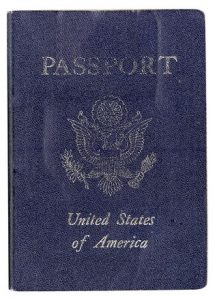You might be a United States Citizen and Not Even Know It!
It is common knowledge that anyone born in the United States of America or its territories (such as Puerto Rico) is, by extension, a U.S. Citizen. In law, we refer to this as jus solis birthright citizenship. “Birthright citizenship” refers to citizenship that is acquired at the moment of a person’s birth. “Jus Solis” is just Latin for “right of the soil” and means that the person’s right as a citizen is a result of being born on U.S. soil.
Less commonly known is that birthright citizenship is NOT limited just to people born in the United States. A person can also, under certain circumstances, acquire U.S. citizenship at birth through a blood relation, no matter where they were born! This is known as “jus sanguinis” birthright citizenship or citizenship through “right of blood.”
While the “soil” rule for birthright citizenship is fairly simple, the “blood” rules are much more complicated. We will provide a brief overview of the various categories of individuals who are U.S. Citizens at birth through blood relations.
Children born to U.S. Citizen Parents. If both of your parents are U.S. citizens, were married on the date of your birth, and at least one parent has resided in the United States, congratulations! You are a U.S. Citizen.
Children born to parents, one of whom is a U.S. citizen and the other who has Green card. Similar to above except one parent is a green card holder. In order for you to have acquired citizenship at birth, the green card-holding parent must have been physically present in the U.S. continuously for at least one year prior up until (and on) the date of your birth.
Children born to parents, one of whom is a U.S. citizen, the other who is neither a citizen nor green cardholder. If you are born in wedlock to parents, one of whom is a U.S. Citizen, you acquire citizenship at birth IF the U.S. Citizen parent was physically present in the United States for at least 5 years total, including at least 2 years after they turned 14 years old. Note that the 5 years presence need not be continuous.
Children born before noon EST on May 24, 1934. We will not provide a detailed explanation of this category as it applies to so few people living today.
You may have noticed that all of the above categories include the requirement that the child’s parents be married at the time of birth. Are children born out of wedlock out of luck, then? No. 
Children born out of wedlock have additional hurdles to overcome to prove citizenship but fundamentally fall into the same categories as above, the difference being that when the claim to citizenship relies on a U.S. Citizen Father, a blood relationship must be established between the child and father by clear and convincing evidence. The father must also agree in writing to provide financial support for the child until the child turns 18 years old and acknowledge paternity (alternatively, paternity may be established by court order).
For the sake of simplicity, we have not covered every single nuance of birthright citizenship outlined in the Immigration and Nationality Act (INA). However, what we have described in this post covers many individuals who are born U.S. Citizens.
If you think you might be a U.S. Citizen but don’t have documentary proof, take action soon! Although by law you may, in fact, be a U.S. Citizen, this fact isn’t of much practical use if you don’t have a certificate of citizenship as few, if any, administrative agencies are willing to simply take your word for it. The attorneys at the Tran Law Firm can verify that you were indeed born a U.S. Citizen and help you get your certificate of naturalization to prove it. Schedule a consult with us today!
